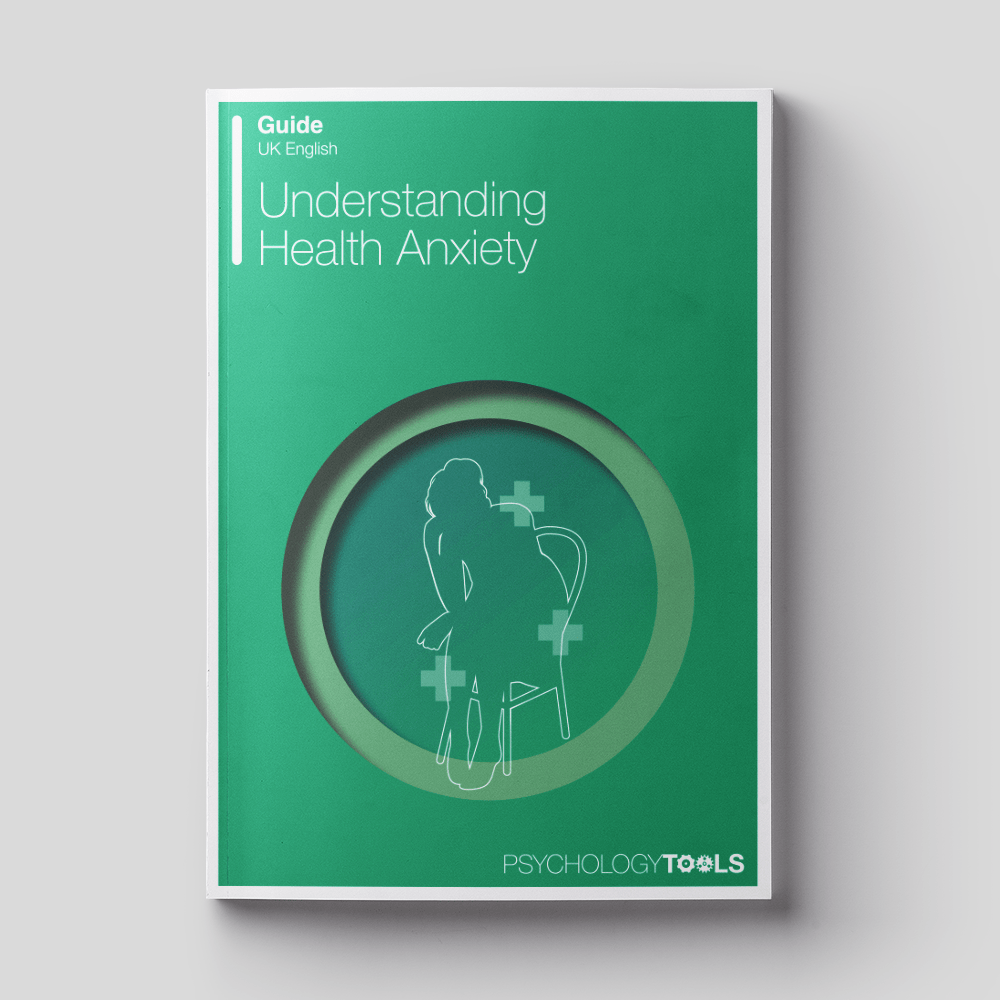11th July 2023 Newsletter


Psychology Tools
Published
Welcome to our first newsletter for July 2023.
This week we're announcing our new 'Exposures for....' series, covering a range of exposures for commonly experienced fears. We're also publishing a further two Spanish translations from our Understanding... series of guides: Understanding Depression and Understanding Health Anxiety.
In our research roundup, we cover a paper looking at the use of expectancy violation to improve research outcomes. We also highlight a paper by Stephen Barton and colleagues exploring treatment options for persistent, difficult-to-treat depression.
New Series Announcement

'Exposures for...' series
Exposure is one of the most effective interventions for overcoming fear, and an essential treatment component for many conditions. Covering many commonly held fears, each handout provides a range of exposure exercises for addressing a specific fear. The series also includes helpful guidance for practitioners, including theoretical details, suggested questions and prompts for extra direction.
The first five resources in this series are available to download today: Exposures For Fear Of Appearing Anxious, Exposures For Fear Of Body Sensations, Exposures For Fear Of Breathlessness, Exposures For Fear Of Causing Harm To Others, and Exposures For Fear Of Causing Harm To Yourself.
The series is accessible for anyone with a paid membership – Basic, Advanced, or Complete.
Versatile
Clinicians can use the series in many ways, both during and outside of sessions:
Inform case conceptualizations and formulations.
Familiarize clients with the concept and experience of exposure.
Identify clients’ feared stimuli, and inform exposure exercises and hierarchies.
Identify safety behaviors and normalize fear related triggers.
New Spanish Translations

Understanding Depression
Our ‘Understanding…’ series is a collection of psychoeducation guides for common mental health conditions. Understanding Depression is designed to help clients suffering from depression understand more about their condition.

Understanding Health Anxiety
It is thought that between 1 and 10 people out of every 100 will experience health anxiety every year. This friendly and explanatory guide gives clear descriptions of symptoms and treatment options, as well as exploring maintenance factors.
Latest Research

Using Expectation Violation to Improve Outcomes
Positive and negative expectations play a central role in many psychological difficulties, including anxiety disorders and depression. For this reason, many therapies aim to test out clients’ problem-specific expectations, including CBT. However, the best way to do this isn’t always clear. In this practice-focused article, Winfried Rief and colleagues explain why some individuals maintain unhelpful expectations even when they are disproved, and how therapists can create the most effective expectation-violating situations and experiments possible. Filled with clinical examples and practical recommendations, this paper will be immensely useful for therapists who offer exposure-based therapies or interventions.
Rief, W., Sperl, M. F., Braun-Koch, K., Khosrowtaj, Z., Kirchner, L., Schäfer, L., ... & Panitz, C. (2022). Using expectation violation models to improve the outcome of psychological treatments. Clinical Psychology Review, 102212.

CBT for Difficult-to-Treat Depression
CBT is an effective treatment for depression, but some individuals don’t respond well to it or relapse soon after therapy. This can raise a dilemma for therapists: should depressed clients who haven’t improved be offered another course of CBT or a different treatment? Stephen Barton and colleagues provide a third option in this paper: an integrated form of CBT specifically developed for difficult-to-treat depression, based on self-regulation. The authors suggest that persistent depression is maintained by several factors including self-identity disruption, reduced motivation, rumination, intrusive memories, passive life goals, and others. To address these issues, therapists are encouraged to draw on up to ten different treatment components based upon the client’s case conceptualization. The result is an individualized and comprehensive therapy that enhances self-regulation and restructures identity in helpful ways:
The method we applied is collaborative and integrative, in two senses. Firstly, all interventions are guided by individualised case formulations in collaboration with clients… When at all possible, treatment dilemmas are shared with clients and their feedback is used to shape model development and treatment strategies. Secondly… we draw on several theories of depression, relevant cognitive science and treatment strategies, including first, second and third wave therapies.
Barton, S. B., Armstrong, P. V., Robinson, L. J., & Bromley, E. H. (2023). CBT for difficult-to-treat depression: self-regulation model. Behavioural and Cognitive Psychotherapy, 1-16.
Get sent more useful pieces like this!
Sign up to our monthly newsletter full of helpful ideas, tools, and tips for mental health professionals like you. You'll find out about our latest resources, and you can also read our reviews of the latest research.
It's completely free and you can unsubscribe at any time.